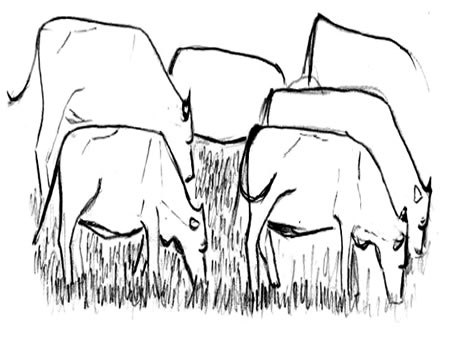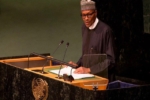IN the 60s while we were attending primary school, we were taught the history of the early man. We were informed that the early man was nomadic- i.e. he travelled from place to place and did not live in any one place for a very long time.
They did this in search of fruits and other means of subsistence. (Note that man in this sense means the early specie of humanity. We were also taught that the early man later accidentally struck two stones together and discovered fire during the stone age between 3.4 million years ago to about 6000 B.C. as a source of energy and power;it then occurred to the early man that it was possible to settle down at a location, fend for himself any live what was described as a sedentary life,sedentary life i.e. the life of a group of people living together in an environment.
This sedentary life later generated the society where man becomes dependent on one another on a mutually beneficial basis. This was a stage on the scale of civilization. When I say the Early Man, I am writing about our progenitor, I am not talking of a Fulani man, a Nupe man, an Hausa man, a Bachama man, a Jukun man, a Mwaghavul man, a Berom man, Ibo man or Yoruba man, I am talking or writing about the specie of homo sapiens (homo-habilis aka handy man) representing the fore-fathers of humanity. We were also informed that the Early Man developed shifting cultivation in his progressive pacing towards agriculture. This was more than 5000 B.C. Society is dynamic, whether we like it or not;“The world outside is moving fast, my lord and we must move with it” says Ajugo in his play This Is Our Chance By Henshaw. Man has progressed from analogue telephone to digital.
We must toe this line. Therefore, we must get herdsmen of Nigeria to begin to live a sedentary life as opposed to a nomadic life. The time has come. This is why the present effort of the government of creating ranches, all over the troubled areas should be supported by all peace-loving Nigerians. It is to be noted that I deliberately avoided the use of the phrase “Fulani herdsmen,” a phrase I believe is misapplied because it is not only Fulani that are Herdsmen in Nigeria. There are Hausa herdsmen, there are Nupe herdsmen, there are Berom herdsmen, Mbagyi (Gwari) herdsmen, Tiv herdsmen, Mwaghavul herdsmen, Jukun herdsmen, Ngas herdsmen, Bachama Herdsmen, Kataf herdsmen, Idoma herdsmen and Southern herdsmen, etc. I have listened to some radio stations and they cleverly avoided using the phrase Fulani herdsmen and Farmers clashes,rather they use the phrase herdsmen and farmers clashes. I have equally read so many sensational write-ups ethnicising the conflict by confining it to a particular group. This politicizing and ethnicising a sensitive issue. This is a dangerous trend and potential source of friction. We sacrifice our Nation’s potentials on the altar of ethnicism, religion and unnecessary hatred. We should note the derivatives and advantages of the cow. The hooves of the cow is revenue yielding. The meat is a source of protein. The alimentary canal is a factory converting the inedible grass to edible beef for the consumption of Man.
The faeces are manure even in the dry lands and desert. Many countries live on the husbandry as their main source of revenue. Similarly, the attachment of the farmer to his land and crop is both resourceful and spiritual. He believes the area he inhabits is his ancestral home that he can till and make to yield not only for his subsistence but also as a means of income. The horn of the cow is used for several ornaments not to talk of hides skin. Similarly, the sprouting of yams from the soil excites the emotional attachment of the farmer to the land. The harvest fulfills his expectation and existence. For him to wake up one day and see the destruction of his farmland as if his essence is destroyed. The solution to grazing in Nigeria can be tackled by the government. Those who live in the cities are oblivious to the clashes in the outskirts where many die due to these clashes. The loss of one person’s life used to be outrageous to the whole community; at least that was what it used to be in the 60s.
The value attached to life in the 60s must be revived. Any harm done to any individual must be regarded as harm to humanity to be collectively condemned. We must find the means of removing the cause of the friction between farmers and herdsmen. Ranching that will incorporate. The Ardos i.e. the Head of the community and settlers should be incorporated into the administrative set up of the Ranches so that they can be links between the herdsmen and the Administration of the ranches. Now that the government is making effort in a network of rail-lines, the location of ranches should be taken into consideration. Movement of cows should be as time progresses by coaches and beef to urban supermarkets while locals can also patronize the nearest ranches. Legislation that will stem the trend of hazardous movement of animals should be put in place. Legislation that may appear to some as heresy should be made no matter how distasteful it initially might appear. After all when Mrs. Waziri as Chairperson of EFCC proposed plea-bargaining, the political class called her names and tried to label her. Today the plea bargaining idea mooted by her is now section 272 ACJA – Administration of Criminal Justice Act 2015.
The words of our elders are the words of wisdom. The clashes between farmers and herdsmen can be averted by separating criminality from politics and by trying to abhor selective application of the law. Professor Wole Soyinka says in his book, Myth and Mythology in Africa: “The heresies of yesteryears are the orthodoxies of today. After all, Martin Luther was excommunicated from the Lutheran Church for his Thesis on Protestantism. Today, Protestant churches are all over the world. Whatever can stop this denigrating and decimating as well as destruction of citizens of Nigeria who form the productive class of the nation should be discouraged.
- Akeremale, a legal practitioner, is a retired Commissioner of Police
Nigerian Tribune
This page has been viewed 644 times
Tags : Editors choice






























